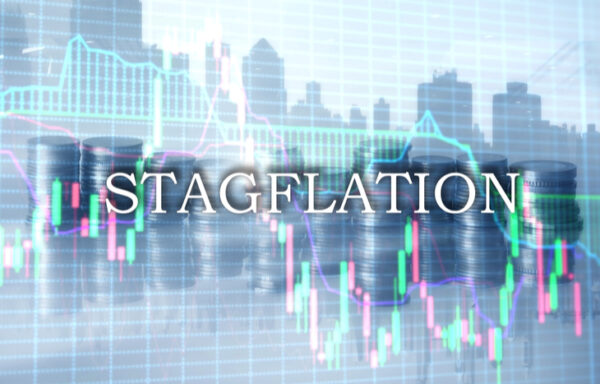What is Active Trading?
If you buy and sell stocks frequently, you’re participating in active trading. Unlike buy-and-hold or indexed investors, active trading is, well, active. Rather than let a position grow over time, active traders capitalize on incremental gains. They rely on charting and technical analysis to identify entry and exit points. And they minimize time in the market to hedge against risk. The goal is simple: make a lot of trades, and win more than you lose.
It’s important not to oversimplify active trading. It takes a tremendous amount of insight to be a successful trader. You need technical analysis skills and the ability to recognize patterns, as well as the resolve to take profits and eat losses. Done right, active trading can be extremely lucrative. Approach it with foolhardiness, and you’ll watch the red accumulate in your portfolio.
The Five Types of Active Trading
There are five main types of active trading, with many more strategies under them considered “active.” If you participate in any of these types of trading, you’re considered an active trader:
- Day trading. This involves opening and closing multiple positions in a single day. Day traders spend very little time in positions—often just minutes. They hold no positions overnight or across trading days.
- Position trading. Position trading can be a buy-and-hold strategy, as well as an active one. Active position traders watch weekly or monthly charts and seek to play patterns. As soon as they see a pattern develop, they’ll ride it to the culmination.
- Swing trading. Swing trading involves holding positions overnight, but never for more than a few days. Traders set incremental price targets and exit positions quickly to minimize exposure to swings. Many traders swing trade to avoid margin requirements.
- Scalping. This strategy involves exploiting gaps in ask-bid prices for relatively risk-free profits. Deployed in a liquid market like forex, scalping is a strategy that can instantly accumulate ROI. Profit is often fractional without leverage, however.
- Arbitrage. Like scalping, this strategy involves taking advantage of price discrepancies across markets. Arbitrage involves buying a security for one price on a market, then selling it at a premium on another. It’s often done in seconds, before the gap closes.
While some of these strategies are more difficult to execute than others, each represents active trading. Traders are actively monitoring the market and their positions. Even with automated price targets and stop-losses, there’s an active element to identifying and choosing positions.
The Benefits
Risk management is far and away the biggest benefit. As an active trader, you have total control over your risk. If you don’t like the way a pattern adjusts, you can exit before a loss (or minimize losses). At a macro level, you can adjust risk based on portfolio weight or sector. Your risk isn’t on autopilot or tied to a systematic strategy.
In addition to risk management, risk mitigation is high in active trading strategies. Spending less time in a position reduces the impact of time as a variable. That means less volatility, fewer disruptions and better reliance on patterns. Traders can look at market momentum or clear technical indicators with better reliability.
Pitfalls to Beware of
Cost is the biggest barrier to active trading. While many retail brokers offer free trades these days, there are still costs to consider. For example, day traders need to meet the FINRA minimums for account collateral. Currency traders also need to consider exchange rates. And, of course, each profitable trade is a taxable event, which can add up.
The other big pitfall to worry about is time. Most active traders minimize their time in a position to safeguard from market swings. Active strategies are all about incremental gains. Overshooting your target can leave you open to reversal and losses. Likewise, trying to wait out a losing position can lead to more and more red. Active traders can’t afford to have their liquidity tied up in long-term losing positions.
Full-Time Job or Part-Time Gig?
Many people see active trading in one of two ways. First, as a full-time job they can use to generate livable income. Second, as a side gig for earning discretionary income. Both are possible under the right circumstances.
Those interested in full-time active trading need to have a strong grasp on markets, technical analysis and trading strategy. They also need access to enough capital to get them started and an account with a broker. If you choose a proprietary broker, you’ll also need to pass a FINRA Series 57 exam to operate a trade account.
Part-time active traders may need more capital to get started. If you want to day trade on a retail brokerage account, you’ll need a minimum of $25,000. Swing traders can get by with less, but may not have access to the same real-time tools professional traders do.
The most important things to remember in either case are risk tolerance and money management. It’s vital to have a plan and stick to that plan. Whether you’re a pattern day trader or look for scalping opportunities, you need to have an exit strategy.
The Bottom Line
Are you ready to begin your journey as an active trader? If so, sign up for the Trade of the Day e-letter below. This daily newsletter will giv you stock tips, picks and analysis unlike anywhere else.
Active trading is a great way to get familiar with the ebb and flow of the market. Because it only looks at the incremental opportunity of securities following charting patterns, there’s often less convolution with it than there is in fundamental analysis. And while the gains come in small chunks, smart plays add up over time. Traders just need to be diligent in setting stop-losses and taking profits, or they could regret it when the market shifts. Discipline is key for active traders.
[adzerk-get-ad zone="245143" size="4"]




